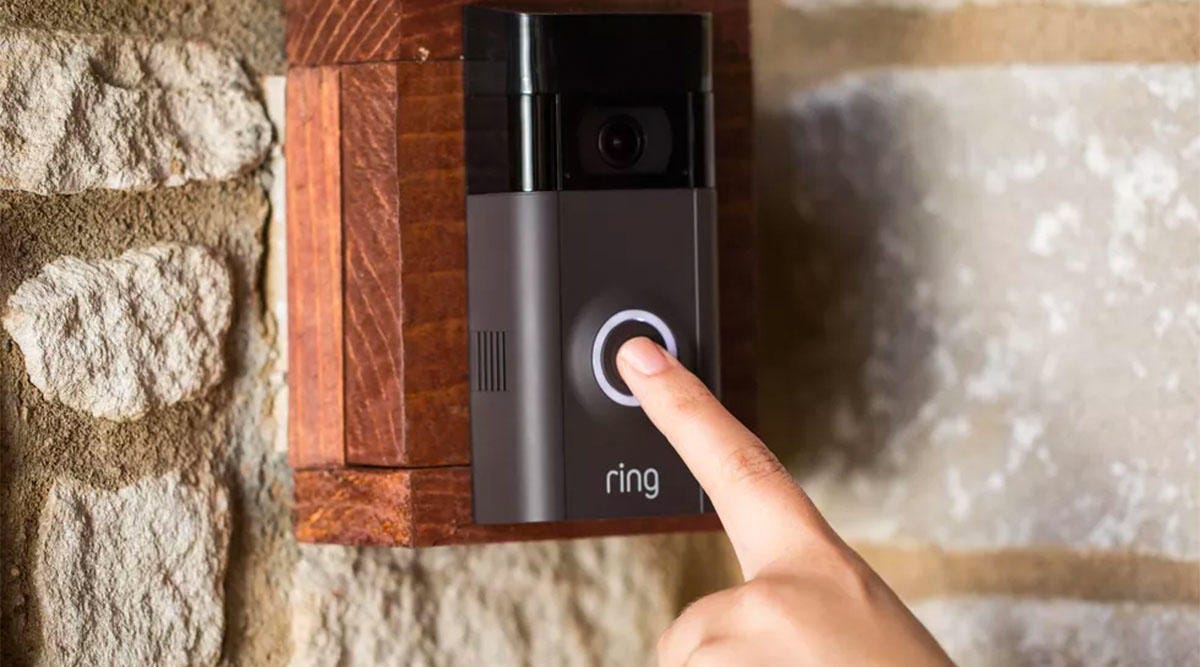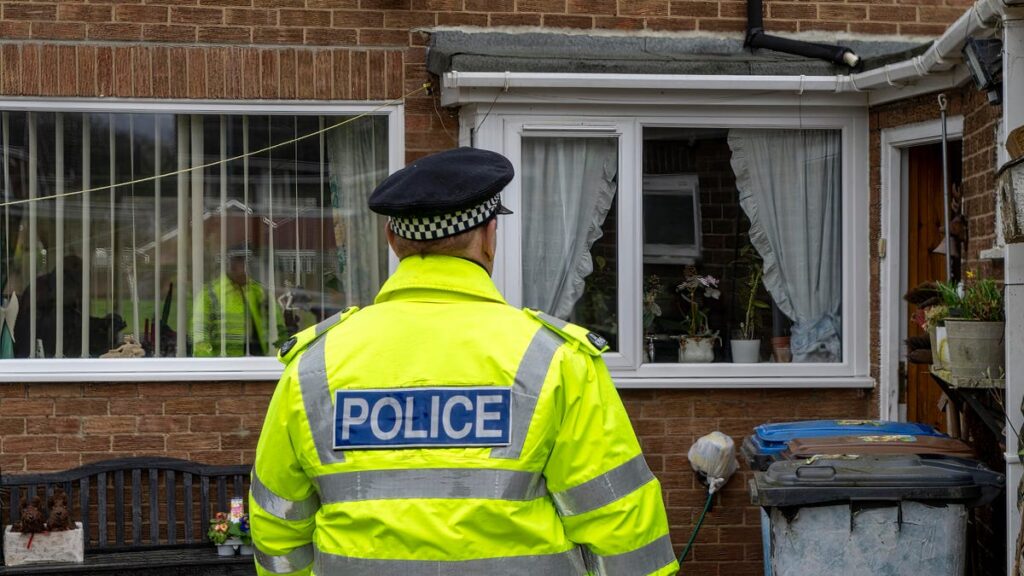Home privacy and law enforcement are often at odds, as are recordings from home security cameras. Police cannot view live footage from private cameras, but they Do There are several options for obtaining stored footage when investigating a potential crime. This includes cloud video storage and local storage via devices such as microSD cards. In some cases, you may not even receive notification that the police filmed you.
If you’re nervous about these possibilities, we understand, but we have some handy legal information to help you prepare for what may happen. Let’s take a look at the three main ways police can obtain your home videos, what you can do to protect your footage, and whether federal agencies must follow the same rules.
1. Request cloud video in emergency situations

In emergencies, the police have the legal right to request sensitive information such as camera footage.
First, as described in the company’s privacy policy, law enforcement has the option to request cloud video footage in emergencies. “Emergency” here usually means a life-or-death situation or something else high-risk, such as a kidnapping or the pursuit of a violent criminal.
Most security companies that provide video storage in North America will handle and consider these emergency requests. Here’s Google Nest’s explanation of how it handles sharing user data with law enforcement, how it tries to narrow the scope of a user’s privacy request, and how it lets users know about the request. Security users may not be aware that their cloud videos have been accessed by police.
“Before fulfilling a request, we make sure it complies with the law and Nest’s policies,” the company said. “We will notify users about legal requests when appropriate, unless prohibited by law or court order. If we believe a request Too broad and we will try to narrow it down.”
In these cases, law enforcement contacts the cloud video management organization directly (usually your security brand, such as Arlo or Ring) and requests specific video clips from an area through a channel set up to allow such requests.
important tips: While there is an option to share stored cloud video, security companies typically do not allow law enforcement agencies to directly view the live view on the camera. Due to end-to-end encryption and related practices, even the security companies themselves may not have this capability, except in some cases of professional home monitoring.
2. Search warrant seeking home security equipment

Search warrants are even a way to seize the local storage of home security devices.
Another option for police to seize camera footage is through a search warrant or similar court order. A search warrant allows police to take home security equipment and inspect it, including any local storage you have, so avoiding cloud storage doesn’t help much.
Typically, a warrant will only be granted if the police can provide some evidence that a crime may have occurred on the property. It depends on the court and judge requesting the warrant, but it is common for a warrant to be granted. The warrant then goes into effect and has a specific scope and scope of application (which is why you should always ask to see the warrant if law enforcement needs your security cameras).
The search warrant raises a more important question: If your home video camera was seized during a legal search, would you get it back? This is a topic that requires careful consideration, although it is generally accepted from cases like this that the Fourth Amendment prohibits law enforcement from possessing digital devices or data indefinitely. Retrieving a camera during a real-world seizure may not be that simple.
3. Register monitoring equipment

With proper placement, security cameras can deter break-ins, but be aware of potential problems.
There is a third interesting option for law enforcement that is growing in popularity, especially in certain cities and states where police departments are looking to take advantage of smart home technology. Home security owners can register their cameras and similar devices with local police departments to let them know a device is recording on a specific property. We see schemes like this everywhere from SafeCam in Buffalo, New York, to the Bay Area, California.
These plans vary, but there are several key points. First, this is different from registering an alarm system through a local license, which is specifically for video recording equipment. Second, registration does not mean the police can look through your camera or view any recorded footage. They know where registered residential cameras are, so they can request footage directly from participants who have cameras near crime sites, etc.
Finally, if you do give the police access to a registered camera, they will be able to view and copy the video footage, which can be used as evidence in criminal proceedings. Typically, the registration process will have some requirements, such as prohibiting you from sharing videos with the media and other fine print. Keep in mind that if you deny the request through the registration process, the police can still seek a search warrant to capture the camera and video.
Can you stop police from viewing your security camera footage?
You can reduce this possibility by sticking to local storage instead of using cloud video storage. However, police always have the option of filming and viewing video files after obtaining a search warrant or other court order.
What about federal agencies like the FBI, NSA, or ICE?
These acronyms may be more familiar and scarier, but large federal agencies Generally speaking Limited to the same requirements as your local police department. If they want to view your camera footage, they’ll need a search warrant, specific permission from the user, or a special use “life-threatening emergency” provision. That doesn’t mean federal agencies always follow the law — ICE, IIS and other agencies have examples of violations of surveillance laws — but they are technically subject to the same restrictions. In most circumstances.
“Can the NSA or FBI spy through my home camera?” This is another concern we see all the time, and this is where things get more unpleasant. The NSA obtained the surveillance warrant through Section 702 of the Foreign Intelligence Surveillance Act, a notorious piece of legislation that empowers the FBI, CIA, and NSA when investigating foreign intelligence or terrorist threats. Power to seize electronic materials – all without the need for a search warrant.
Despite the controversy, Section 702 was recently updated and expanded by the Senate, so it’s not going away anytime soon. However, while we don’t know much about how it’s used, we do know that queries often focus on online and mobile communications. The backdoor technology used by these agencies does not appear to have stolen home security camera data, at least not in any significant way. British webcams are a different story. Until we are more transparent about these surveillance methods, we can only know for sure.

Video doorbells make it easy to share video clips, but that comes with a cost.
Post home security videos online
Many security brands offer ways to post videos online through Ring Neighbors apps, dedicated forums, social media groups, etc. If you post a video in a public place like this, it can be used by law enforcement, even if you’re just asking for advice.
Safety branding and policy changes in response to police requests
Finally, we should mention that security companies’ policies on sharing information with the police may change. Just this year, Ring decided to end its more liberal sharing program with police, limiting them to the life-or-death requests we talked about above.
What if I don’t want to store security camera footage in the cloud?
This is also an option. When exploring options like top-rated wireless or outdoor home security cameras, you may want to look at cameras without subscription plans that take video completely off the cloud, limiting police access to search warrants as a means of capturing footage. You can also view cameras with specific additional features, such as bright LED lights.

